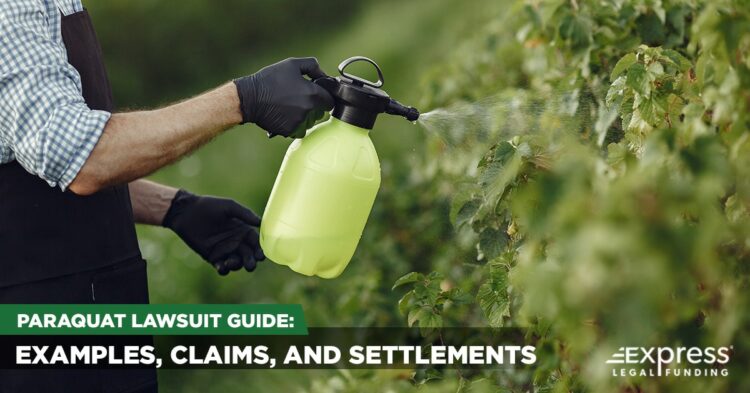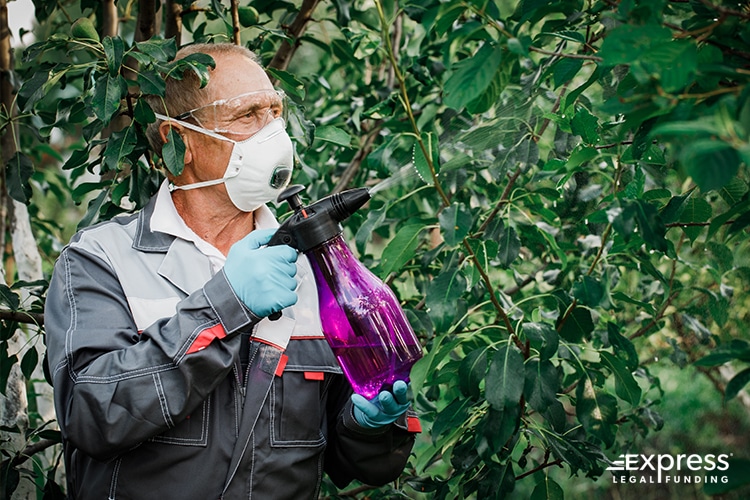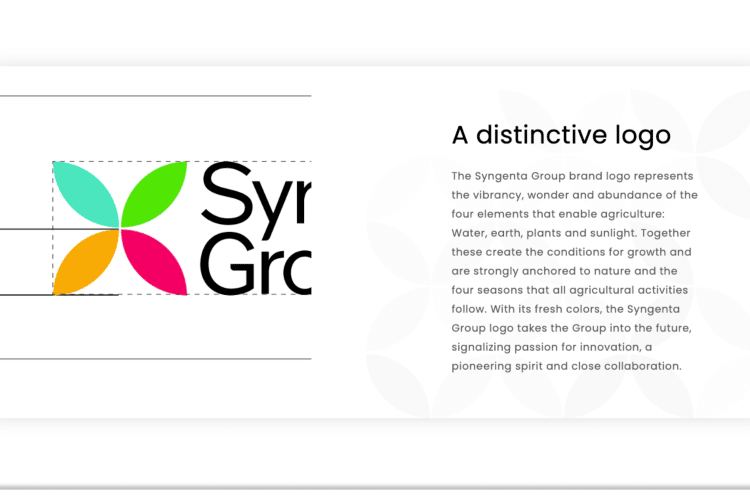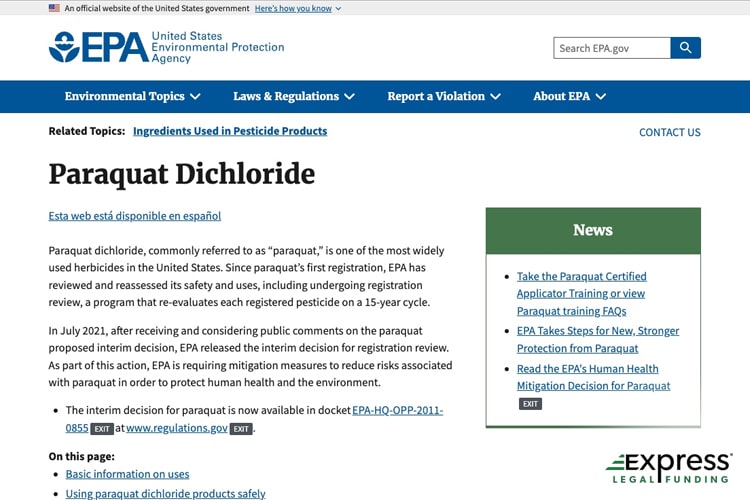
It’s fair that we should expect a reasonable degree of safety in the world and that we should not have to fear being harmed while we go about our daily lives. Unfortunately, this is not always a luxury we can enjoy, as some risks persist even in the safest locations in the modern world we live.
Generally, the most dangerous risks that apply to everyday life result from negligence on the part of a company or individual whose lack of care exposes bystanders to certain risks. These risks usually consist of negligent drivers causing car accidents or people being careless with dangerous machinery or tools.
However, an often-overlooked risk people are subject to is the chemical products we use daily. Or, more specifically, how our exposure to certain chemical compounds within those products can negatively affect people’s health and have legal repercussions worldwide.
This article will focus on one of these dangerous chemicals, its risks, and the lawsuits involved. We will discuss a lesser-known yet widely used harmful substance: The herbicide paraquat.
Studies have shown exposure to weed killers like paraquat and Roundup is linked to an increased risk of health issues. These side effects reduce the quality of life and bring medical expenses. So this leaves victims to wonder about whom can be held civilly liable for the harm they suffered from being exposed to the many pesticides and weed killers.
Unfortunately, this question applies to more than just a few people and their family members. Paraquat is a commonly used weedkiller and has been for a while, so the risk of exposure among workers is high. Fortunately, paraquat’s common use has not cleared the responsibility of those liable for the victims who continue to develop Parkinson’s disease through exposure to paraquat.
While the victims will still be forced to endure the adverse side effects caused by paraquat use, they have been able to pursue legal action against the parties responsible for their exposure.
The issue is that the information surrounding these newly filed paraquat lawsuits is minimal and might discourage you from seeking justice. This article is dedicated to helping correct this lack of information about the lawsuits filed for the link between Parkinson’s disease and paraquat exposure.
What is Paraquat?
In all likelihood, you have never heard the term “paraquat” and are curious about what it is and what makes paraquat exposure dangerous. For starters, to cover every angle, let’s begin with the chemistry definition: Paraquat dichloride, also known as methyl viologen, is a chemical that was first synthesized in 1882.
The molecular formula for paraquat: C12H14Cl2N2
While paraquat might not seem like a familiar name, it is one of the most standard products used by commercial farms and landscapers in the US.
History of Paraquat:
Despite being created 73 years earlier, paraquat did not have a dedicated use until 1955, when it was discovered to be a potent herbicide. This discovery, spearheaded by the Imperial Chemical Industries laboratory in Jealott’s Hill, UK, led to its mass production and being sold commercially seven years later in 1962.
At that point, paraquat was sold under the name Gramoxone. In 2022 paraquat remains one of the most commonly used and popular herbicides worldwide.

Herbicides and weedkillers generally fall under two categories, which depend on how the chemicals kill the plants.
Types of Herbicides:
- Contact herbicide: As the name sounds, this weedkiller will only kill the part of the plant with which it gets in contact. So it starts working as soon as it touches the plant’s surface.
- Systemic herbicide: This is the most effective type of herbicide if you want to remove the entire plant down to its root. It takes longer to work as it is absorbed into the plant and deep into the roots to ensure it does not grow back. This makes systemic herbicides, especially popular for killing weeds in hard-to-reach areas like sidewalks. Paraquat and Roundup fall in this category.
Paraquat is also categorized as a non-selective herbicide. This means it does not discriminate between what you are using it to kill and what you are trying to protect. Unlike other herbicides, paraquat is:
Economic Benefits of Paraquat:
- It is known to kill several species of annual grasses, broad-leaved weeds, as well as the tips of perennial weeds.
- It is a fast-acting herbicide that takes effect much quicker than rival products.
- Will become immune to rainfall within a few minutes of the initial application.
- Will lose a degree of functionality upon contact with the soil.
These cost-saving qualities helped paraquat become very popular in no-till farming and led to its mass approval across the European Union and the United States of America.
Studies Link Paraquat to Increase Risk of Parkinson’s Disease
Despite this popularity, several countries banned paraquat altogether. In the United States, the EPA made it a “restricted use” product, which means it can only be used by people licensed to use it.
That was the result of paraquat poisoning being linked to severe health complications. Specifically, medical studies have linked paraquat exposure to Parkinson’s disease, a progressive disorder affecting the nervous system.
Unfortunately, with how studies work, medical researchers discovered the correlation between paraquat and Parkinson’s disease because people had that happen to them.
There are documented instances of individuals developing Parkinson’s disease after exposure to paraquat. The increased risk of Parkinson’s and other side effects led to the restriction of its use and the start of paraquat lawsuits being brought against the parties the victims seek to hold responsible: The manufacturers of paraquat.
Unfortunately, Parkinson’s disease lawsuits have generally fallen into obscurity in the wake of more exciting lawsuits with faster fatalities. So many have overlooked this herbicide’s legal troubles.
Fortunately, there is still more information coming out about the paraquat lawsuits for public consumption, and that is what we will keep you updated on within this article.
Paraquat Lawsuit Status in 2022
Personal injury lawyers and law firms initially filed the paraquat lawsuits with such volume and across so many borders that it became impossible to treat them as individual claims. Fortunately, high-volume cases with multiple plaintiffs are not an uncommon concept in the United States legal system.
Eventually, the plaintiffs combined all the lawsuits against the companies that make paraquat into multidistrict litigation (MDL) that would attend to all plaintiffs. Similar to class action lawsuits, these MDLs are designed to streamline the settlement process when there are many injured parties.
Who the wounded parties of paraquat can sue is a different question altogether. It is rare for someone who lives and works in an urban center like New York City to be exposed to paraquat.
The farmers and agricultural workers expected to work in fields that require paraquat are likely to have paraquat exposure. The proximity of these individuals to fields where farmers used the herbicide spray led to their exposure, and several have developed Parkinson’s disease, alleging the paraquat was the catalyzing factor.

Some of the earliest lawsuits against paraquat’s manufacturing companies were filed in 2016. Despite the age of the paraquat lawsuits, there has only recently been significant movement on the status of the MDL. In February of 2022, Nancy Rosenstengel, the chief US district judge, denied the requests of the defendants to dismiss the paraquat litigation.
The first proper trial to address the paraquat claims was originally scheduled for November 15th, 2022, with more in 2023. However, the trial date was pushed back to allow time for more depositions as the number number of new filed paraquat cases continues to grow quickly. So, the first paraquat bellwether trial won’t be until July 2023. The trial will set the tone for how much the paraquat lawsuit settlement amounts can be.
Although there have been a few delays in the MDL, the earliest claims appear on track to resolve in the plaintiff’s and their loved one’s favor. Most plaintiffs should not expect to see a possible paraquat lawsuit settlement until 2024 or even much later. There was a June 17th deadline for both sides to complete their expert depositions and disclose articles of discovery relevant to the case. This deadline was critical at the time, as over 600 active lawsuits were filed. The number of paraquat cases is quickly growing.
Paraquat lawyers and law firms have filed over 1,900 paraquat cases.
While this information is valuable to understanding the general nature of the paraquat lawsuits, we have yet to discuss a specific claim against the companies producing the toxic chemicals.
Paraquat MDL
As of September 2022, the current number of paraquat lawsuits already amounted to around 1,900 separate plaintiffs united to form the MDL. With so many victims, discussing every individual claim in this article would not be feasible. However, it’s more realistic and helpful to identify a few of the most recent additions to the MDL.
Although Syngenta® is the most well-known, many chemical makers and manufacturers of paraquat produce herbicides containing paraquat as an active ingredient under different brand names.
They are known as off-patent manufacturers since they began making their own brand names of paraquat once the paraquat patent expired, and they were no longer required to pay for the rights to produce the herbicide for sale.
Even with all the paraquat Parkinson’s scandal coming to light, paraquat is not the only weedkiller that has recently faced legal trouble.
Similar herbicide sprayers such as Roundup, which Monsanto, now owned by Bayer®, produced, have also faced lawsuits. Although for other health reasons, Roundup does not contain paraquat within its formula.

One of the leading distributors of paraquat is Syngenta®, an agricultural protection company that sells paraquat to protect farm crops. Four recent claims against paraquat are aimed at Syngenta’s brand of paraquat, Gramoxone.
Syngenta Paraquat Lawsuits:
- The first of these claims is Holliday et al. v. Syngenta et al. The lawsuit was filed by Doug Holliday, a farmer in Iowa. He filed the class action claim on behalf of several farmers on May 3rd, 2021, against Syngenta and Chevron USA(Chevron is Syngenta’s U.S. distributor of paraquat) for failing to warn of paraquat’s connection to Parkinson’s diagnosis. Holliday had been using paraquat as an herbicide on thousands of acres of crops for over three decades before the harmful side effects of paraquat were made public.
- The second claim is Adams v. Syngenta et al. Unlike the previous lawsuit, this one was not filed as a class action suit and was an independent lawsuit presented by Robin Adams of Missouri. Adams’ claim alleges that her husband, a certified herbicide applicator, routinely sprayed paraquat for over 15 years. Adams eventually developed Parkinson’s disease linked to the paraquat exposure she endured as his wife. Robin Adams faulted Syngenta for deliberately hiding the severity of the product’s toxicity on their product labels.
- The third claim is Pratt v. Syngenta et al. in the Southern District of Illinois. This claim originated with Ellis Pratt, a resident of Illinois who claims that long-term exposure to paraquat led to him developing renal disease. Pratt’s lawsuit alleges direct exposure to paraquat via contaminated drinking water for 11 years. After he was diagnosed with kidney disease, Mr. Pratt and his law firm filed a claim against Syngenta on April 22nd, 2021.
- In the fourth claim, farmers and environmental groups sued the EPA (Environmental Protection Agency) on September 24th, 2021. In the lawsuit, they allege that their decision to approve the use of paraquat was a violation of the Federal Insecticide, Fungicide, and Rodenticide Act.
These claims are only a few of the two thousand suits filed against Syngenta and Chevron for the harmful effects caused by paraquat. With the number of paraquat victims joining the MDL and the recent success of the Roundup lawsuits, the legal situation appears positive for the paraquat victims seeking compensation in federal court.
How Much Are the Paraquat Lawsuit Settlement Amounts?
The reality is it is too early to estimate the paraquat lawsuit settlement amounts. None of the bellwether paraquat lawsuits have reached a verdict, and until then, no one can be certain how much the average paraquat lawsuit settlement amount will be. The same thing goes for any mass tort or class action lawsuit. (A bellwether trial is the first trial to reach a verdict that can help us estimate what settlements the plaintiffs can expect.)

These paraquat cases are only beginning to see proper litigation in the wake of years of stagnation. There will be no lawsuit or trial to cite as a reference until July 2023 at the earliest.
The first paraquat bellwether trial is scheduled for July 2023.
Still, there are a few estimations for possible paraquat settlement amounts that cannot be taken as fact at this juncture. They use settlement amounts from lawsuits that have some similarities to form an estimate. One is the Roundup class action lawsuit.
Estimates: Paraquat Lawsuit Settlement Amounts
Some legal professionals estimate the average paraquat lawsuit settlement per plaintiff will range from $10,000.00 USD to $200,000.00 USD, whereas others estimate a $500,000.00 USD settlement is possible.
Unfortunately, until a precedent is established, there is no baseline for what kind of settlements the victims of paraquat can expect. Granted, the projected payout for these types of lawsuits is never simple to determine.
Depending on the verdict, the awarded amount could also include punitive damages. Although they would act as punishment for any alleged misconduct, they could be a bonus for the plaintiffs provided on top of the amount already compensating the victims for their losses.
If you are among the victims who suffered side effects from the harmful toxicity of paraquat, you might wonder if you qualify for the paraquat lawsuit MDL. Fortunately, typically there is an established set of criteria to help potential victims find their way into legal proceedings.
Can You Join the Paraquat Parkinson’s Lawsuit?
Unfortunately, when dealing with product liability lawsuits, it is not always obvious when a product has victimized us, and it can take time for the symptoms to present themselves.
People who take a while to have symptoms are often concerned about being unable to seek justice because they were unaware of the symptoms that came from using the harmful product.
Fortunately, the legal system takes measures to ensure that victims have the opportunity to seek compensation from the responsible party, with the paraquat product liability case being no different.
If you believe you are the victim of paraquat-induced illness such as Parkinson’s disease or renal failure, you could qualify to have your claim added to the MDL.
Since paraquat is still permitted within FDA guidelines under restricted use, it still sees regular use in the United States. It is not banned. This FDA approval means American citizens still face health risks and exposure in areas where the herbicide paraquat is used. To join the paraquat Parkinson’s lawsuit MDL, you must meet specific criteria, or your claim may be rejected.

Before you can qualify to be added to the paraquat lawsuit claimant list, you will typically be provided an online form to fill out the details about your paraquat and Parkinson’s disease situation.
The Paraquat Settlement Form Will Ask You:
- The type of exposure(direct or indirect) you had to paraquat and to what extent was the exposure.
- Info about your Parkinson’s diagnosis and whether you have any family history of the disease.
- Your family history of other neurodegenerative disorders aside from Parkinson’s.
- The financial damages incurred as a result of your Parkinson’s symptoms.
If your symptoms took hold after prolonged exposure to paraquat and you can confirm the exposure, your chances of qualifying to join the paraquat MDL significantly increase. These details can help you generally determine whether you may have a solid claim against manufacturers and distributors of paraquat.
Still, as always, we recommend you speak to a paraquat lawsuit attorney or law firm so they can hear the specifics of your situation. Not only can a paraquat lawyer best evaluate your situation, but they can also provide you with a free case evaluation to determine whether you qualify for the MDL.
Closing Statements on Paraquat Parkinson’s Lawsuits
Unlike the countries where paraquat is banned, it is only regulated and not outlawed in the US. Despite its efficacy as an herbicide, paraquat is a hazardous substance that risks compromising your health. While paraquat exposure is less common in urban centers, it is still possible for you to be exposed in any area used.

If you have been exposed to paraquat and diagnosed with Parkinson’s, you likely have a chance of filing a claim against the manufacturers.
Unfortunately, product liability claims involving your health are rarely inexpensive as you likely have to incur medical expenses, which can leave you and your loved ones having to deal with financial stress that was wrongly caused to you by a defective device or toxic chemical.
The issue with the legal system is that settlements take a long time to negotiate, and your financial obligations are not suspended while the case is processed. Not to mention how class action lawsuits and MDLs are among the slowest.
Fortunately, for injured plaintiffs expecting a potential settlement or trial award, we at Express Legal Funding can often help in those situations by providing financial relief through pre-settlement funding. How it works is that the money is advanced in the form of a non-recourse lawsuit cash advance. As the legal funding company, we can offer you a pre-settlement lump sum payment to pay for essential costs and bills while your case progresses.
Since it is non-recourse, we only get repaid from a portion of your case proceeds, and that is if you settle or win your claim. Making it a risk-free financing option for plaintiffs. So, if you need extra money to help pay your bills during your lawsuit or legal claim, contact us anytime for a free consultation to see if you qualify for pre-settlement funding and whether it is the best option for you.
Paraquat Pre-settlement Funding
Update for Paraquat Lawsuit Plaintiffs: Please note it is too early in the paraquat MDL for claimants to qualify for pre-settlement funding. There has not been a bellwether trial verdict on which to base the approved funding amount.
So until that time, Express Legal Funding will continue to provide direct legal funding for many different personal injury and class action case types, including Roundup lawsuits. So we encourage you to be patient and consult with your lawyer before you apply for lawsuit funding, especially if it is for your paraquat claim.
